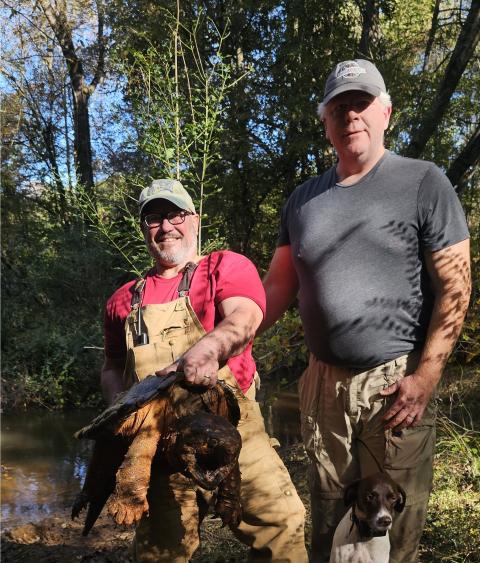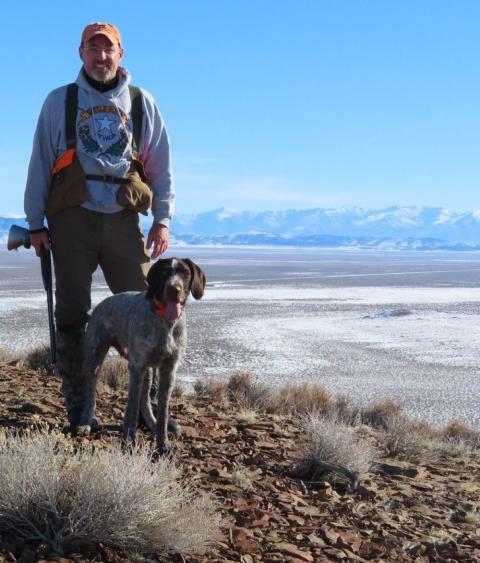Conservation Brief
Conservation Funding Sees Action on Capitol Hill
Several bills related to land and wildlife conservation funding saw action in Congress over the last month. First, on November 19 the Senate Energy and Natural Resources Committee passed S. 1081 that would provide full and permanent funding for the Land and Water Conservation Fund. On November 21, the U.S. House of Representatives passed H.R. 925, the North American Wetlands Conservation Extension Act on a bipartisan suspension vote. Then on December 5, the House Natural Resources Committee passed the Recovering America’s Wildlife Act (H.R. 3742) by a strong 26-6 bipartisan vote followed by passage of the Modernizing the Pittman-Robertson Fund for Tomorrow’s Needs Act (H.R. 877) by unanimous consent. The actions show a flurry of activity on a number of priorities for organizations that have been working on the issue of conservation funding for a number of years.
The LWCF permanent funding bill (S. 1081) passed through the Senate committee by a bipartisan vote of 13-7 in mid-November. The legislation seeks to secure permanent funding for LWCF at the full authorized level of $900 million. Although LWCF was permanently authorized early this year when S. 47 was enacted, that legislation did not include guaranteed funding. The House Natural Resources Committee passed their companion legislation (H.R. 3195) in June and then reported the bill to the full House earlier in November. The bills now await consideration by both chambers.
The North American Wetlands Conservation Extension Act (H.R. 925), that passed the House before Thanksgiving, would reauthorize the North American Wetlands Conservation Act (NAWCA) at $60 million annually through Fiscal Year 2024. NAWCA supports wetlands conservation projects throughout the U.S., Canada, and Mexico to improve important habitat for birds and other wildlife. The law requires non-federal matching funds for each project, and since 1989 NAWCA has directed $1.6 billion in federal funding that was matched by $3.57 billion in non-federal funds. The reauthorization bill has not yet been considered in the Senate.
“Now in its 30th year, NAWCA has completed nearly 3,000 on-the-ground conservation projects while conserving more than 29.8 million acres in all 50 states, Canada and Mexico. This program will continue to play a substantial role in restoring this crucial habitat,” said Congressional Sportsmen’s Foundation President Jeff Crane.
The Recovering America’s Wildlife Act (RAWA, H.R. 3742) saw strong support in its first congressional action since being introduced in July. The legislation would dedicate $1.4 billion to state, territorial, and tribal wildlife agencies for the proactive conservation of species identified by the state as declining. Increasing funding for state fish and wildlife agencies has been a top priority of the conservation community for many years. The House Natural Resources Committee passed the bill, which currently has more than 160 co-sponsors, by a bipartisan vote of 26-6. At the same markup, the committee approved the Modernizing the Pittman-Robertson Fund for Tomorrow’s Needs Act (H.R. 877) that would allow funding from federal excise taxes on hunting and shooting equipment to be used to support recruitment of new hunters and recreational shooters.
“Right now, more than one-third of all wildlife species in the United States are at heightened risk of extinction — and demand immediate conservation attention. The Recovering America’s Wildlife Act is the most significant piece of wildlife legislation since the Endangered Species Act passed in 1973,” said Collin O’Mara, president and CEO of the National Wildlife Federation. “Thanks to the leadership of Chairman Grijalva and Reps. Dingell, Fortenberry and Huffman, and the bill’s more than 150 bipartisan cosponsors, this historic bill is making important progress in the House and is showing that even in these divided times, wildlife conservation can bring all Americans together.”



